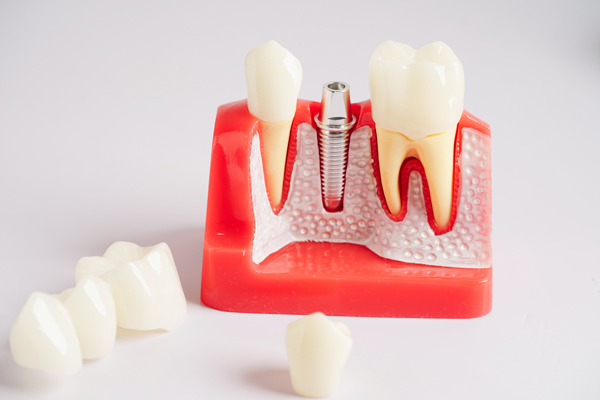Sinus Augmentation for Dental Implants

Dental implants are a great option to replace missing or extracted teeth, but unfortunately, not everyone is a viable candidate. One obstacle that can stand in the way of them is a lack of bone support in your upper jaw. This is because your jawbone needs to be sturdy enough to support the titanium involved in the procedure. A sinus augmentation is a surgery that can correct this by adding extra bone.
Dental implants: who needs them?
In general, you may need them if you’re missing teeth or need to get teeth extracted. Gum disease has the potential to loosen teeth and may require them to be pulled. Tooth decay can also cause irreparable damage.
However, they are not recommended for everyone, as some may have experienced bone loss. This can occur in tandem with gum disease and tooth loss, as it is even possible that bone is absorbed into your body after you lose a tooth. This is when a sinus augmentation is an option. It can help to rebuild and strengthen the bones in your upper jaw so that they can support the necessary implants.
How does sinus augmentation work?
First, X-rays will be taken of your jaw to ensure that you are a candidate and determine where the extra bone will come from. It may be taken from your body, a cow, or even a cadaver. Once everything is determined, the surgery can proceed.
First, the gums in your upper jaw must be cut to expose the bone under them. Then, the bone itself will be cut into, and bone graft will be placed in the hole. Lastly, the cut will be closed. Afterward, it will take one to three months for the new bone to properly attach to the old bone and the surrounding area to heal. Once the healing process is complete, you will get dental implants on your upper jaw.
What should you expect after the surgery?
Some pain, swelling, and discomfort are expected with any surgery. Bleeding from your mouth and nose is also possible. However, symptoms are usually mild. You should also try not to blow your nose often afterward. This can loosen stitches and cause complications.
You will likely be prescribed a painkiller, antibiotics, an anti-inflammatory, and a saline spray to keep your nasal cavity wet. You will also have a follow-up appointment about a week after the surgery to remove stitches and examine the healing process.
The risks of the surgery itself are minimal. Infection is possible but rare. Your sinus membrane may also be torn, but this can usually be stitched back together. It is also possible that the graft does not properly merge with your bone, and the surgery must be repeated.
If you experience long-term swelling, pain, or bleeding or worry that the graft may have dislodged, be sure to contact your dentist so they can evaluate you. Ultimately, the chance of complications is rare, and the surgery is safe.
Speak with your dentist
The best way to know if sinus augmentation is a solution for you is to talk with your dentist. Call today to schedule your appointment. Your dental team is excited about helping you get the treatment you deserve.
Request an appointment here: https://www.wayne-dentist.com or call Luke Klele DMD at (973) 553-2512 for an appointment in our Wayne office.
Check out what others are saying about our dental services on Yelp: Dental Implants in Wayne, NJ.
Related Posts
People who have been recommended to get dental implants may be wondering how to take care of them after surgery. Implants are artificial teeth held in place by metal posts positioned in the gums. They are constructed to look and function like natural teeth; thus, managing them is similar to caring for regular teeth. Once…
Root canal therapy can treat and preserve natural teeth affected by deep tooth decay, infection, inflammation, or traumatic injury. The treatment focuses on removing the compromised tissue within the tooth, protecting surrounding teeth, and maintaining long-term oral health. That way, patients can avoid having to go through the trouble of getting tooth replacements that require…
Dental restorative procedures like implant supported dentures can be a solution to partial or complete teeth loss. No one wants to lose a tooth, but you may experience it due to situations beyond control. In addition to transforming your smile, the procedure can boost your self-esteem and have your teeth functioning fully in no time.An…
A traditional dental bridge can replace up to three or four consecutive teeth on the same side of a dental arch. It is one of the most common dental replacements you can get. Knowing how to care for it can help maintain your new smile for a long time. Here are some tips for ensuring…
